10 Unit Testing and Automation Tools and Libraries Java Programmers Should Learn
If some of you thinking, why a programmer should focus on automation testing then let me tell you that the importance of automation testing is growing exponentially due to more awareness and emergence of DevOps.
Companies generally prefer programmers who are good at writing unit tests and show good knowledge of various unit testing frameworks, libraries, and tools e.g. JUnit, Selenium, REST-Assured, Spock framework etc.
As a Java developer, we work on very different areas, starts from writing core Java code to creating JSP pages, writing REST APIs, and sometimes even creating Groovy scripts for build automation. That's why we also need to be aware of different tools we can use to automate testing of different Java stuff.
For example, I only knew JUnit for a long time but when I had to test my JSP pages, I was clueless until I found Selenium. Same goes with REST Assured because I usually test my REST API using curl command, but REST Assured takes the unit testing of REST APIs to another level.
10 Essential Unit and Integration Testing tools for Java ProgrammersSince I believe, a programmer is as good as their tools, I always try to learn and explore new tools and libraries in my free time and this list is part of that research.
In this article, I am going to share 10 of the best and essential tools, frameworks, and libraries which can help Java developer writing unit tests and integration tests on their various Java projects.
1. JUnitI don't think JUnit need any introduction. Even if you are a beginner Java programmer, you might have heard about it. It allows you to write unit tests for your Java code.
Almost all major IDEs like Eclipse, NetBeans, and IntelliJIDEA provides JUnit integration which means you can both write and run the unit test right from those IDE.
Most of us are still using JUnit 4 but JUnit 5 is already released and probably the next thing to look this year. You can use JUnit for both unit and integration testing and it also supports Java 8 features.
Btw, if you are a completely new in the unit testing world, particularly in Java unit testing then this JUnit and Mockito crash course is a good starting point.
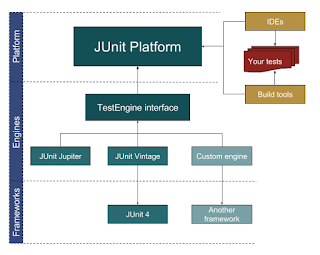
2. REST AssuredTesting and validating REST services in Java is harder than in dynamic languages such as Groovy. REST Assured brings the simplicity of using these languages into the Java domain. It's a great tool for REST API integration tests.
If you are serious about writing an integration test for your REST API, then you must learn the REST Assured and REST API Testing Automation: via REST Assured & HTTP Client course on Udemy is a good place to start with, I have already joined this course and will put some time aside to learn this tool in 2019.
It covers many aspects of REST API testing e.g. Automated REST API Testing using Rest Assured Java and RESTful web service Testing via POSTMAN and HTTP Client.
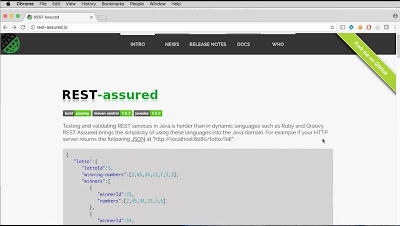
3. Selenium
4. TestNGTestNG is a testing framework inspired by JUnit and NUnit but introducing many new functionalities that make it more powerful and easier to use, such as annotations, Running your tests in arbitrarily big thread pools with various policies available (all methods in their own thread, one thread per test class etc).
The gap between JUnit and TestNG has reduced because of using annotations from JUnit 4 and integrating the Hamcrest matchers as well but it's up to you.
If you decide to learn TestNG for unit testing your Java code then TestNG Complete Bootcamp For Beginners - Novice To Ninja is a good course to start with.
It provides step by step guide for learning TestNG Framework (Next Generation) to speed up your automation goals
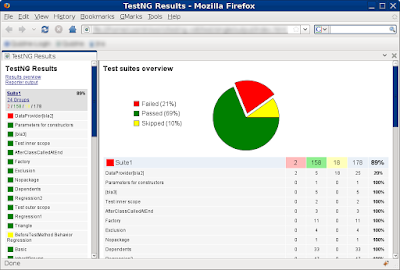
5. MockitoThere are many mocking frameworks for Java classes e.g. PowerMock, JMock but I personally like Mockito for their simple API, great documentation and a lot of examples.
Mocking is one of the essential technique of modern-day unit testing, as it allows you to test your code in isolation without any dependency and that's why I encourage every Java developer to learn a mocking framework along with JUnit.
My favorite mocking framework is Mockito but if you like you can also explore PowerMock or JMock.
If you choose to stick with Mockito and decide to learn this framework then Mockito Tutorial: Learn mocking with 25 Junit Examples is a good course to start with.

6. Spock FrameworkSpock is another testing and specification framework for
Java and Groovy applications. It's written in Groovy which makes it very expressive and to the point specification language.
When you use Spock, your test will become more readable and easier to maintain and thanks to its JUnit runner, Spock is compatible with most IDEs, build tools, and continuous integration servers.
Unfortunately, I didn't find a useful course to learn Spock framework but Java Testing with Spock book is a good resource to start with.
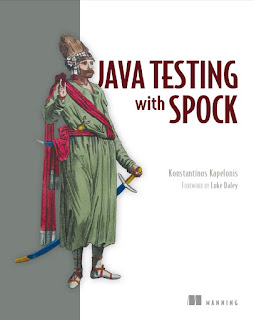
7. Cucumber
Cucumber merges specification and test documentation into one cohesive whole living documentation and since they will be automatically tested by Cucumber, your specifications are always banged up-to-date.
If you want to build a start to finish web automation testing framework and simulate user behavior on a web application then Selenium WebDriver with Java & Cucumber BDD is a good course to both learn and implement Cucumber in your project.
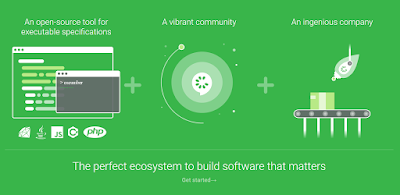
8. Spring TestSpring MVC comes with a very useful test framework, which allows doing in-depth testing without even starting a web container.
It is one of the most useful libraries for writing automated tests to Spring applications. It provides first-class support for writing unit and integration tests to Spring-powered applications including MVC controllers.
There is also a Spring Test DbUnit that integrates the Spring Test framework with DbUnit and a Spring Test MVC HtmlUnit which integrates the Spring Test MVC framework with HtmlUnit.
By using these tools you can easily test your Spring MVC application in an automated way.
9. DBUnitA database is an integral part of many Java applications, both
Core Java, and Web application and probably the biggest obstacle while doing unit testing.
It's not reliable to connect to Dev or UAT database for integration tests because anyone can change the data and schema e.g. tables, stored procedure and it will cause your automated integration test to fail.
DbUnit is a JUnit extension that can be used to initialize the database into a known state before each integration test and ensure that the database contains the correct data.
DbUnit has its own issues, but it is a very useful tool because it helps us to separate the test data creation from the tested code.
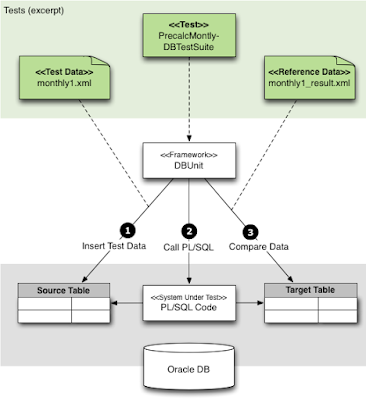
10. Robot FrameworkThe Robot Framework is a python based, generic test automation framework for acceptance testing and acceptance test-driven development.
It is a keyword-driven testing framework that uses tabular test data syntax. You can use it to test distributed, heterogeneous applications, where verification requires touching several technologies and interfaces.
If you decide to learn this wonderful framework for integration test then Udemy's Robot Framework Test Automation is a great resource to start with. It's a two-part course which covers the basic and advanced features of Robot framework.
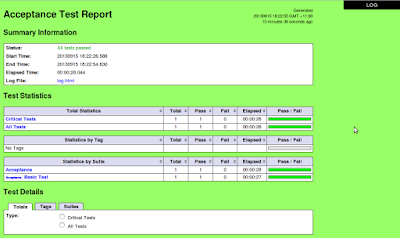
That's all about some of the essential unit testing and integration testing tools, frameworks, libraries for Java developers. There are many more libraries which I have not included in this list e.g. AssertJ, Hamcrest which can help you to write beautiful and fluent test but take things slowly.
To start with, learn a tool or library which you can use in your day-to-day work, for example, if you are working with Java UI then you should first learn Selenium because then you can focus on this tool more.
Similarly, if you are working on REST APIs then learn REST Assured. Similarly, if you are doing a lot of core Java work, then JUnit 5 is probably the first library you should look.
It doesn't matter much which tool to start first but make sure you spend some time to upgrade your skills in this New Year.
Other Programming Resources and Articles You may like
10 Books Every Programmer Must Read
10 Tips to Improve Your Programming skill
10 Object-Oriented Design Principle Every Programmer should know
10 Articles Every Programmer Should Read
10 Tools Every Software Developer Should Know
10 Things Java Developers should learn in 2019
10 Tips to become a better Java Developer in 2019
10 Frameworks Fullstack developer should learn
Thanks for reading this article so far. If you like these tools then please share with your friends and colleagues on Facebook. If you have any questions or feedback then please drop a note.
最新文章
- MySql 里的IFNULL、NULLIF和ISNULL用法区别
- 【Visual Lisp】图元选择集专题
- 20款高质量的 HTML5 网站模板【免费下载】
- Linux使用汇总贴
- mac下CornerstoneSVN出错 Description : The working copy is locked due to a previous error
- Socket(1)
- 如何把iOS代码编译为Android应用
- Linux 网络编程基础(1)--网络相关的数据结构及转化函数
- MySQL相关文档索引
- [poj-2985]The k-th Largest Group_Treap+并查集
- python之路1
- Android增量升级的方法和原理
- nodejs 使用 ethers创建以太坊钱包
- Go-常用库的介绍
- 如何给php数组添加元素
- 给有C或C++基础的Python入门 :Python Crash Course 1 - 3
- tomcat健康检查监控脚本
- 【Mysql数据库访问利器】phpMyadmin
- 2.5 UML顺序图
- js:浏览器插件
热门文章
- SQL分类之DCL:管理用户、授权
- K8S学习笔记之Kubernetes 配置管理 ConfigMap
- NETCore使用带有权限验证的Swagger
- Django TypeError: render() got an unexpected keyword argument 'renderer'
- iOS - 屏幕刷新 ADisplayLink
- Beego 学习笔记12:文件的操作
- google批量搜索实现方式
- [FreeRTOS].FreeRTOS CortexM3 M4中断优先级设置总结
- JVM存储位置分配——java中局部变量、实例变量和静态变量在方法区、栈内存、堆内存中的分配
- Cobbler本机使用VM装机配置方法